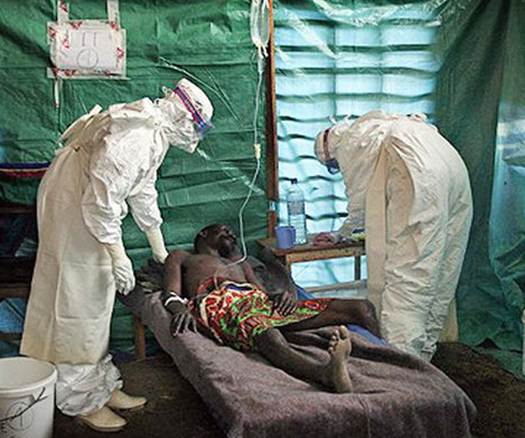West Africa Ebola crisis ‘out of control’
Al Jazeera
The Ebola outbreak in West Africa is “totally out of control,” a senior official for Doctors without Borders has said. Bart Janssens, the director of operations for the group in Brussels, told Associated Press on Friday that the medical group was stretched to the limit in its capacity to respond and that more help was needed if the outbreak was to be stopped. “The reality is clear that the epidemic is now in a second wave,” Janssens said. “And, for me, it is totally out of control.” The outbreak, which began in Guinea either late last year or early this year, had appeared to slow before picking up pace again in recent weeks, including spreading to the Liberian capital for the first time. Ebola has been linked to around 330 deaths in Guinea, Sierra Leone and Liberia, according to the latest numbers from the World Health Organization. “I’m absolutely convinced that this epidemic is far from over and will continue to kill a considerable amount of people, so this will definitely end up the biggest ever,” Janssens said. Fadela Chaib, a spokeswoman for the World Health Organization, said earlier in the week that multiple locations of the outbreak and its movement across borders made it one of the “most challenging Ebola outbreaks ever”. The outbreak shows no sign of abating and that governments and international organizations were “far from winning this battle,” Unni Krishnan, head of disaster preparedness and response for Plan International, said Friday.
But Janssens’ description of the Ebola outbreak was even more alarming, and he warned that the governments affected had not recognised the gravity of the situation. He criticised the World Health Organization for not doing enough to push leaders and said that it needs to bring in more experts to do the vital work of tracing all of the people who have been in contact with the sick. “There needs to be a real political commitment that this is a very big emergency,” he said. “Otherwise, it will continue to spread, and for sure it will spread to more countries.” The World Health Organization did not immediately respond to requests for comment. But Tolbert Nyenswah, Liberia’s deputy minister of health, said that people in the highest levels of government are working to contain the outbreak as proved by the fact that that Liberia had a long period with no new cases before this second wave. Janssens said this outbreak was particularly challenging because it began in an area where people are very mobile and has spread to even more densely populated areas, like the capitals of Guinea and Liberia. The disease typically strikes sparsely populated areas in central or eastern Africa, where it spreads less easily, he said. By contrast, the epicenter of this outbreak is near a major regional transport hub, the Guinean city of Gueckedou. He said the only way to stop the disease’s spread is to persuade people to come forward when symptoms occur and to avoid touching the sick and dead. “There is still not a real change of behavior of the people,” he said. “So a lot of sick people still remain in hiding or continue to travel. And there is still news that burial practices are remaining dangerous.” |
